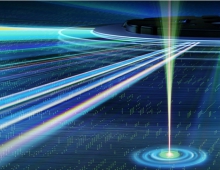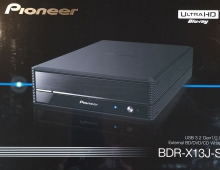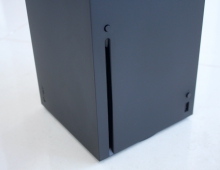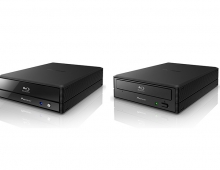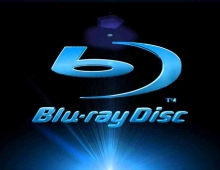
Sony, Toshiba Push Their Own Standards for Next-Generation DVD
Executives at Sony Corp. and Toshiba Corp., which are offering competing standards for next-generation DVDs, finally admit they will push ahead with their own DVD formats.
Sony and Matsushita Electric Industrial Co., which developed the Blu-ray disc, have
been negotiating with Toshiba to create a single standard for new DVDs that can store
more high-definition pictures and other content than existing DVDs. Toshiba, along
with NEC Corp., is backing the HD-DVD disc format.
"The HD-DVD was recognized as the only next-generation DVD format by the DVD Forum", an industry group that sets standards for DVD, said Yoshihide Fujii, Toshiba's senior vice president in charge of the talks, during the annual shareholders meeting today in Tokyo. "The HD DVD will maximize benefits for consumers as it can be released sooner, produced cheaper, and easier to use in products such as car navigation systems."
Global sales of DVD software are forecast to reach $49 billion by 2010, according to London-based market researcher Informa Telecoms & Media Group. Movie studios such as Walt Disney Co. and game developers like Electronic Arts Inc. are backing Blu- ray, while Time Warner Inc.'s Warner Bros. and New Line Cinema are supporting HD-DVD.
Sony's President Ryoji Chubachi yesterday said the company will continue to promote Blu-ray, while Chief Executive Howard Stringer said earlier in the week that he plans to move the company's movie library to the new Blu-ray DVD format.
The Blu-ray discs have as much as 20 times more storage capacity than the 4.7 gigabytes offered by current DVDs, while HD DVD can store about 10 times more data. HD-DVD backers also include Sanyo Electric Corp., TDK Corp. and many of the world's component and device makers.
"A single standard is best for the consumer, but of course, we will continue to promote Blu-ray," said Chubachi at a press conference yesterday.
Needless to say that a possible unification of the next generation formats could not be achieved. Apart from the technical issues, since the rival formats were incompatible with each other and only a hybrid technology (hardware, discs) could be a solution, the idea of sharing profits out of OEM - retail sales, patents and lisence fees was not an option for both Toshiba and Sony.
A possible scenario for the near future places Blu-Ray as the dominant DVD format for PC use, while it leaves the rival HD-DVD to video content distribution. Digital rights management is expected to make things even more complicated, with users trying to create their "personal" backup of their movie, and copyright schemes to control the whole procedure.
Current Blu-Ray recorders
In any case, the first stand-alone Blu-Ray recorders are currently sold in Japan, for $2,500 - 3,000.
Sony BDZ-S77 is able to record up to two hours of HDTV (1080i x 720p) video, in its direct mode (DR) recording mode. The device uses Sony's 23GB Blu-Ray media ($60), and also supports writing on DVD-RAM and DVD+R/+RW/-R/-RW. AudioCD and VideoCD support is also included in the devices specifications. CPRM Recording is allowed on DVD-R only. Sony expects Blu-ray products to be available in the United States in late 2005 or early 2006.
Panasonic also offers the Panasonic DMR-E700BD Blu-ray recorder. Priced at approximatelly $2,600, it is able to record up to 4.5 hours of HD video (24Mbits/sec) on double layer BD-RE media ($70). The device is also compatible with Sony's 23GB media, DVD-R and DVD-RAM. The recorder is equipped with four built-in tuners for terrestrial digital broadcasts, satellite broadcasts and and terrestrial analog broadcasts. The tuners cover all Japanese broadcast media except cable TV. Matsushita is leery of overseas markets, at least for now.
Sharp has made a step further and offers the BD-HD100, equipped with a 160GB hard disk, able to receive HDTV programming via terrestrial broadcasts, digital cable and satellite. The device supports recording on DVD-R/RW, the 160GB HDD or on 23GB/25GB BD-RE media. CPRM Recording is fully supported using all DVD or Blu-Ray supported media. The Sharp BD-HD100 Blu-Ray recorder is sold in Japan for $2,700.
Korean LG Electronics has also introduced the LGXBG420 Blu-Ray recorder with built-in digital video recorder (DVR). The recorder combines the new high-capacity recordable digital media format and a 200-gigabyte hard drive. The device is expected on the U.S. market during the third quarter of this year and is likely to be priced at under US$3,000.
In the PC arena, the HD-DVD camp readies the first HD-DVD readers for launch late this year, while the plans for the first Blu-Ray devices (recorders/players) indicate a commercial launch for mid 2006.
"The HD-DVD was recognized as the only next-generation DVD format by the DVD Forum", an industry group that sets standards for DVD, said Yoshihide Fujii, Toshiba's senior vice president in charge of the talks, during the annual shareholders meeting today in Tokyo. "The HD DVD will maximize benefits for consumers as it can be released sooner, produced cheaper, and easier to use in products such as car navigation systems."
Global sales of DVD software are forecast to reach $49 billion by 2010, according to London-based market researcher Informa Telecoms & Media Group. Movie studios such as Walt Disney Co. and game developers like Electronic Arts Inc. are backing Blu- ray, while Time Warner Inc.'s Warner Bros. and New Line Cinema are supporting HD-DVD.
Sony's President Ryoji Chubachi yesterday said the company will continue to promote Blu-ray, while Chief Executive Howard Stringer said earlier in the week that he plans to move the company's movie library to the new Blu-ray DVD format.
The Blu-ray discs have as much as 20 times more storage capacity than the 4.7 gigabytes offered by current DVDs, while HD DVD can store about 10 times more data. HD-DVD backers also include Sanyo Electric Corp., TDK Corp. and many of the world's component and device makers.
"A single standard is best for the consumer, but of course, we will continue to promote Blu-ray," said Chubachi at a press conference yesterday.
Needless to say that a possible unification of the next generation formats could not be achieved. Apart from the technical issues, since the rival formats were incompatible with each other and only a hybrid technology (hardware, discs) could be a solution, the idea of sharing profits out of OEM - retail sales, patents and lisence fees was not an option for both Toshiba and Sony.
A possible scenario for the near future places Blu-Ray as the dominant DVD format for PC use, while it leaves the rival HD-DVD to video content distribution. Digital rights management is expected to make things even more complicated, with users trying to create their "personal" backup of their movie, and copyright schemes to control the whole procedure.
Current Blu-Ray recorders
In any case, the first stand-alone Blu-Ray recorders are currently sold in Japan, for $2,500 - 3,000.
Sony BDZ-S77 is able to record up to two hours of HDTV (1080i x 720p) video, in its direct mode (DR) recording mode. The device uses Sony's 23GB Blu-Ray media ($60), and also supports writing on DVD-RAM and DVD+R/+RW/-R/-RW. AudioCD and VideoCD support is also included in the devices specifications. CPRM Recording is allowed on DVD-R only. Sony expects Blu-ray products to be available in the United States in late 2005 or early 2006.
Panasonic also offers the Panasonic DMR-E700BD Blu-ray recorder. Priced at approximatelly $2,600, it is able to record up to 4.5 hours of HD video (24Mbits/sec) on double layer BD-RE media ($70). The device is also compatible with Sony's 23GB media, DVD-R and DVD-RAM. The recorder is equipped with four built-in tuners for terrestrial digital broadcasts, satellite broadcasts and and terrestrial analog broadcasts. The tuners cover all Japanese broadcast media except cable TV. Matsushita is leery of overseas markets, at least for now.
Sharp has made a step further and offers the BD-HD100, equipped with a 160GB hard disk, able to receive HDTV programming via terrestrial broadcasts, digital cable and satellite. The device supports recording on DVD-R/RW, the 160GB HDD or on 23GB/25GB BD-RE media. CPRM Recording is fully supported using all DVD or Blu-Ray supported media. The Sharp BD-HD100 Blu-Ray recorder is sold in Japan for $2,700.
Korean LG Electronics has also introduced the LGXBG420 Blu-Ray recorder with built-in digital video recorder (DVR). The recorder combines the new high-capacity recordable digital media format and a 200-gigabyte hard drive. The device is expected on the U.S. market during the third quarter of this year and is likely to be priced at under US$3,000.
In the PC arena, the HD-DVD camp readies the first HD-DVD readers for launch late this year, while the plans for the first Blu-Ray devices (recorders/players) indicate a commercial launch for mid 2006.

